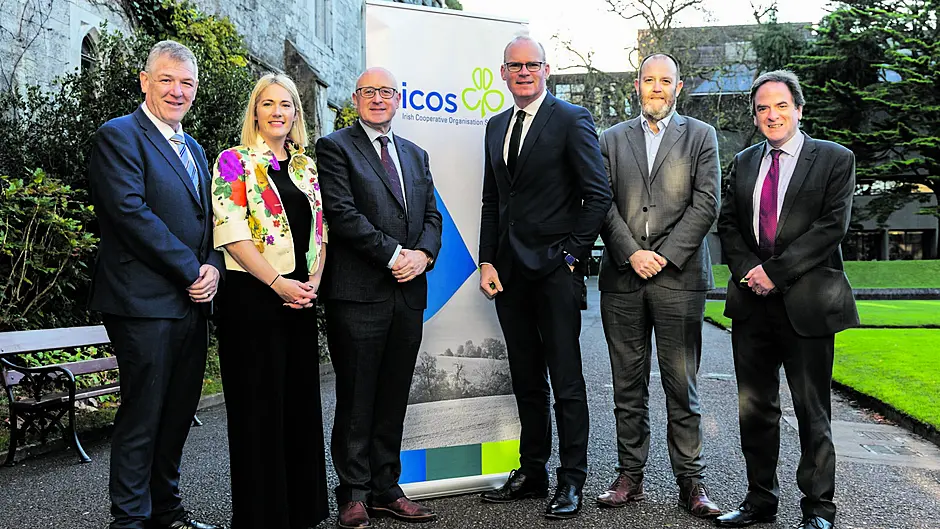THE president of the Irish Co-operative Organisation Society has said that ‘huge question marks’ hang over the future of the next generation of farmers.
ICOS president Edward Carr was speaking at a two-date conference of farming’s future sustainability held at UCC last week. The event was opened by Enterprise, Trade and Employment Minister Simon Coveneyand jointly organised by the ICOS, UCC’s Food Industry Training Unit, ICOS Skillnet and The Plunkett Institute.
Mr Carr said the dairy industry contributes exports of €6.8bn anually and is worth €17bn to the rural Irish community. But he said Irish agriculture is facing significant economic and environmental challenges.
‘These challenges are coming at a time when we’re trying to encourage young people to get involved in the dairy industry. Generational renewal is a common issue all over Europe, and it is on a par with sustainability as a priority. Genuine questions are now being asked, as to where is the next generation of food producers going to come from.
‘Gender equality is also high on the agenda of the co-operative movement. In the past year we have seen some welcome developments with the adoption of the ICOS Gender Equality Charter and already we are seeing the fruits of this initiative at co-op level.”
“As a consequence of the reduction in the maximum stocking rate, huge question marks hang over the future of the next generation of dairy farmers.’
Mr Carr was part of the delegation which recently met with EU Environment Commissioner Virginijus Sinkevičius on his visit to Government Buildings, a meeting he described Mr Carr said was bitterly disappointing. ‘It is very unfortunate that the Commission are unwilling to give the range of new measures - designed to improve water quality under Ireland’s current derogation - the time to be implemented, and their impact on water quality assessed.’
While many farmers have seen their derogation reduced from 250kg of nitrates per hectare to 220kg – including 434 farmers in West Cork – Mr Carr believe there is grounds for optimism from the latest EPA reporting on water quality, which showed water quality improving in the Priority Areas for Action where the ASSAP programme is active.
‘While farmers have made huge investments at farm level to improve the management of slurry, we need to continue to make these improvements, despite the uncertainty over the future of the derogation. The return from these investments will provide farmers with the options to make better use of their nutrients and also ensure that these nutrients are applied at the most appropriate time.’
He called on the Government to provide certainty on future derogations so that farmers who may be fearful of investing in new slurry storage capacity, in case of a further reduction to the derogation can continue to invest and improve their farm facilities.
‘I strongly believe that the environment is in the DNA of every Irish family farm. My message is that the dairy sector is taking its responsibilities seriously and is delivering. There is no other economic sector as engaged and focused on the environment.
‘My message to the Government, is that they must provide the resources and time to allow for adoption of sustainability measures at farm level.’









